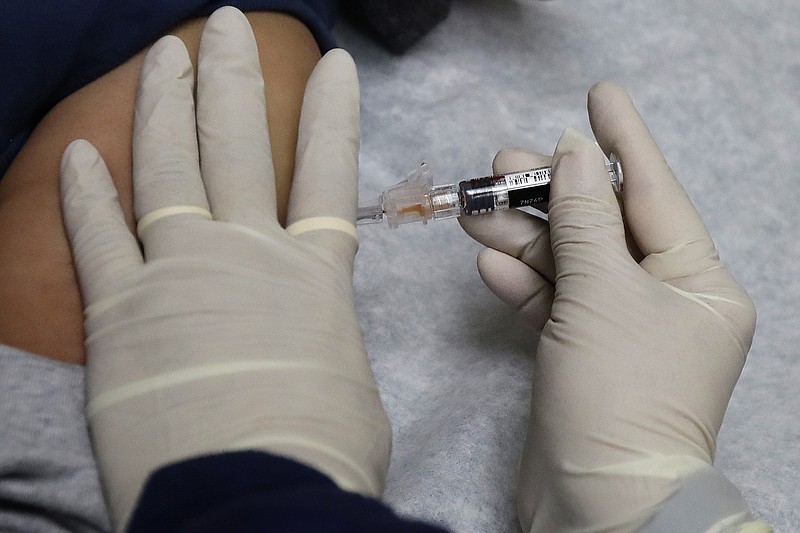Health department officials say Chattanooga's hepatitis A outbreak shows no sign of slowing despite six months of aggressive, communitywide education and vaccination efforts.
So far this year, two deaths and more than 500 hepatitis A cases have been confirmed in Tennessee, with Hamilton County currently reporting 55 cases.
The cases are part of multistate outbreak that likely began in California last year. In Tennessee, the Mid-Cumberland region around Nashville has been hit hardest. Neighboring Kentucky has reported 2,769 cases - the most of any state - with more than 1,400 hospitalizations and 17 deaths as of Nov. 17.
"We've been telling ourselves this is not a sprint - this is a marathon," Diana Kreider, director of clinical services at the Chattanooga-Hamilton County Health Department, said during a Regional Health Council meeting Monday.
Hamilton County's first known case occurred in May 2018, with a "steady trickle" of cases since, said Connie Buecker, communicable disease clinic program manager at the health department. Typically, the county sees none or one case of hepatitis A per year.
Hepatitis A is a vaccine-preventable, viral infection that damages the liver and is spread from person to person via a fecal-oral route, so proper hygiene also helps prevent transmission. Although the vaccine is highly effective, difficulty reaching those at highest risk for infection - recreational drug users, homeless or transient people, and men who have sex with men - makes controlling the outbreak a challenge.
In response to the outbreak, the health department has worked with community partners to target these populations, educate and administer more than 2,800 hepatitis A vaccines in addition to the routine childhood immunizations.
"We want to keep people thinking about it, getting the vaccine and educating others," Buecker said.
People are most infectious prior to onset of symptoms, which include fever, fatigue, loss of appetite, nausea, vomiting, abdominal pain, dark urine, clay-colored bowel movements, joint pain and yellowing of the skin, also known as jaundice.
"Most of the time it's people using the bathroom, not washing their hands, giving you food," Buecker said.
Infection periods can range from a mild illness lasting a few weeks to a severe illness lasting several months.
The health department tries to track and interview everyone diagnosed with hepatitis A. In Hamilton County, most of those diagnosed fell between the ages of 30 and 50, at least 30 of them said they used drugs recreationally, and at least 35 people were hospitalized due to the illness.
There is no treatment for hepatitis A, and about half of the people who become infected in this outbreak will require supportive care through hospitalization to manage the symptoms.
GET THE VACCINE
All health department clinic locations are currently offering free hepatitis A vaccines for walk-in clients:
- Chattanooga, 921 East 3rd Street, Chattanooga TN, 37403, 423-209-8340
- Homeless Health Care Center, 730 East 11th St, Chattanooga TN 37403, 423- 265-5708
- Birchwood, 5625 Hwy 60, Birchwood TN, 37308, 423-961-0446
- Ooltewah, 5520 High St, Ooltewah TN, 37363, 423-238-4269
- Sequoyah/Soddy-Daisy, 9527 West Ridge Trail Rd, Soddy Daisy TN, 37379, 423-842-3031
Contact staff writer Elizabeth Fite at efite@timesfreepress.com or 423-757-6673.
